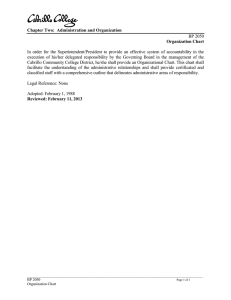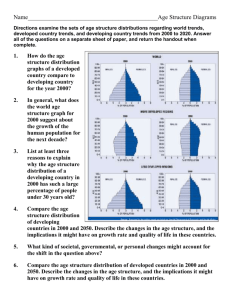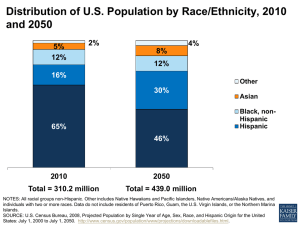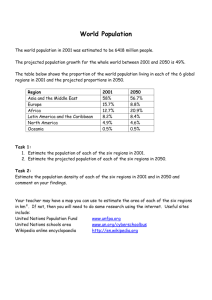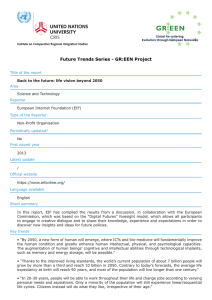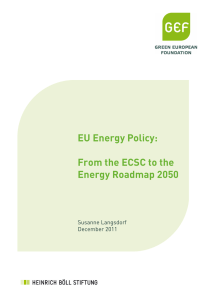Title Slide – Slide 1
advertisement
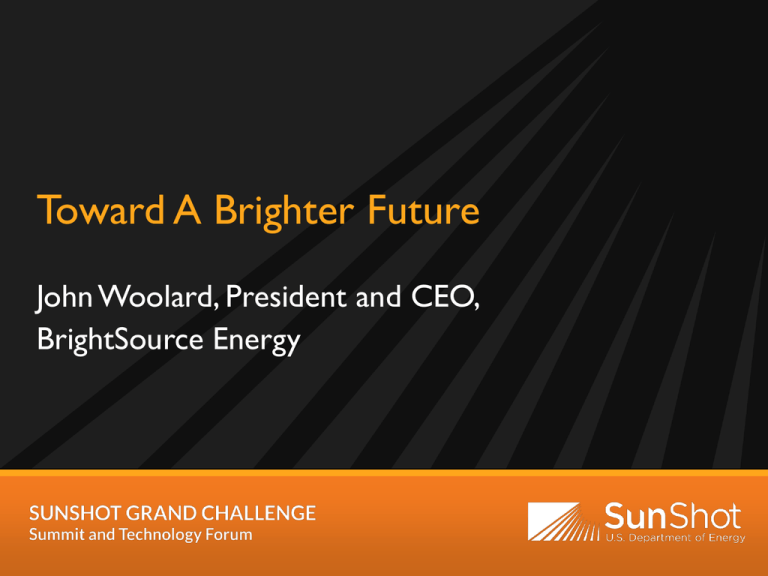
Toward A Brighter Future John Woolard, President and CEO, BrightSource Energy Presentation Agenda Today’s Energy Climate Landscape 2050 Why the Sun? Why the US Must Lead 5 Steps to Ensuring US Competitiveness in the Global Solar Space 2 Today’s Energy Landscape 3 Fossil Fuels Dominate Mix Global Energy Supply by Resource 3% 5% 6% Oil, 37% Natural Gas, 23% Oil Coal Natural Gas Nuclear Hydro Other Renewables Coal, 25% Source: EIA 2009 4 Emerging Economies’ Energy Consumption Growing Energy Consumption Growth 1990-2008 180% 170% 160% 146% 140% 120% 100% 91% 80% 66% 70% 60% 40% 20% 17% 20% Others* USA 7% 0% EU-27 Latin America Africa India China Middle East EIA, 1990-2008 5 China Now World's Largest Energy Consumer Energy Consumption by Region US, 19% Other Other, 32% China Japan India EU, 14% Russia EU US 6% China, 20% 4% 4% Source: BP's Statistical Review of World Energy 2011 6 400 2008 CO2 Concentration: 400 380 360 340 320 300 280 CO (ppm) 2 260 240 220 200 180 800,000 700,000 600,000 500,000 400,000 300,000 200,000 100,000 0 Age (years BP) Source: National Climatic Data Center/NOAA 2050 8 9 Energy Demand More than Doubles 25 Energy Consumption Growth 22 20 17 15 14 12 Gtoe 10 10 5 0 2001 2010 2020 2030 2050 World Energy Council, Deciding the Future: Energy Policy Scenarios to 2050 Executive Summary, 2007 10 Meeting our Clean Power Needs 6,000 History US GHG Goal: Economy-wide 83% GHG reduction by 2050 Zero- and LowCarbon Generation 5,000 (Renewables, Nuclear, Hydro, Fossil w/ CCS) 4,000 Fossil w/o CCS U.S. Power Generation (billion kWh) 3,000 2,000 1,000 0 1970 1980 1990 2000 2010 2020 2030 2040 2050 Ventyx and DOE Energy Information Administration 11 13,000 GW of Carbon-free Energy by 2050 12 An Economic Imperative 13 Why the Sun? 14 Strong Solar Resources Coincident with Growing Energy Regions 15 Innovate, Innovate, Innovate 17 Deploy at Scale 18 Find Energy Synergies 19 Attract Private Capital 20 Address Reliability 21
